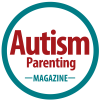-
About
- About Listly
- Community & Support
- Howto
- Chrome Extension
- Bookmarklet
- WordPress Plugin
- Listly Premium
- Privacy
- Terms
- DMCA Copyright
- © 2010-2025 Boomy Labs

Listly by Autism Parenting Magazine
Head banging can be a surprisingly common behavior in many children. Up to 20% of babies and toddlers bang their heads purposefully, with boys being up to three times more likely to engage in this behavior than girls. Head banging often starts at around 6 months, peaking anywhere between 18-24 months of age.
Download our FREE guide at:
https://www.autismparentingmagazine.com/a-head-banging-solution/
Source: https://www.autismparentingmagazine.com/a-head-banging-solution/

Head banging can be a surprisingly common behavior in many children. Up to 20% of babies and toddlers bang their heads purposefully, with boys being up to three times more likely to engage in this behavior than girls. Head banging often starts at around 6 months, peaking anywhere between 18-24 months of age. This habit can stretch out for months (even years), but most children outgrow this behavior by the age of three to four. This behavior may extend later for children diagnosed with autism, developmental delays, or who have suffered from neglect.

Repetitive behavior? It’s all relative. And new research from Bucknell University in Lewisburg, PA, illustrates that the repetitive behavior exhibited by parents themselves may hold the secret to determining what might be typical behavior for a developing child and what might be an early indicator of future developmental struggles.

I am asked time and time again what items we use for our son with autism to make his life and our lives easier. So, here is a breakdown of the things that he (or we) couldn’t live without.

Touch is the first sensation that starts evolving in the womb at five weeks. The early development of the touch (tactile) system provides an essential foundation for emerging social and communicative behaviors (Cascio, 2010).

Low functioning autism falls on the more severe end of the autism spectrum. Children diagnosed with this form of autism need more support to complete daily tasks as they struggle to communicate and manage their behaviors. Symptoms are typically identifiable in infancy or early childhood, as those diagnosed will not meet neurodevelopmental benchmarks such as speaking their first words, learning to self-soothe, or forming bonds with family members and other children.

I am an extended family member of parents of an autistic child. We both live in the same metro area, but sadly we don’t relate. I have made numerous offers to have them visit my home, have had them with us on a couple weekend getaways, as well as traveling to their child’s milestone events so he would have kids (my kids) to help celebrate. I have offered to help them get him in the ocean, mountains, sleepovers, etc. I have also made, what in retrospect are typical blunders, on our first encounter when observing violent behavior toward my own children and their other child. We were never prepared, and were just going on our experience with friend’s kids who were also on the spectrum.

To be completely honest, I thought I was well educated on special education. I mean after all, I have worked with several different students with a wide range of learning disabilities, physical disabilities, etc. However, reality didn’t set in until I had my own child. Let’s face it – there is a huge difference between reading something in a book and living it. My first child was a beautiful, healthy, bright eyed little girl. As an educator, I had such high hopes. I hung black and white pictures next to her changing table and read to her every day. Then one day, my experience in education told me something was wrong with my beautiful baby. Since her birth I struggled to get her to eat. She was very thin and the insurance company even sent someone to weigh her weekly. All she did was sleep and then as she got older, it was impossible to get her to go to sleep.

For children with autism spectrum disorder (ASD), head banging is a common way to self-soothe and communicate needs. Both neurotypical and autistic babies and toddlers seek to recreate the rhythm that stimulated their vestibular system while in utero. Other rhythmic habits that fuel a child’s kinesthetic drive include head rolling, body rocking, biting, and thumb sucking. According to Dr. Harvey Karp MD, rhythmic habits trigger the calming reflex in infants and toddlers. Many babies begin head banging around six months of age, but neurotypical children usually will not continue the behavior after the age of three.

Police are called to the scene of an accident. The driver is unconscious. In the back seat is an 8-year-old boy with blood coming from his forehead. The officer first on the scene sees the driver is unresponsive and the boy in the back is just staring at him.
